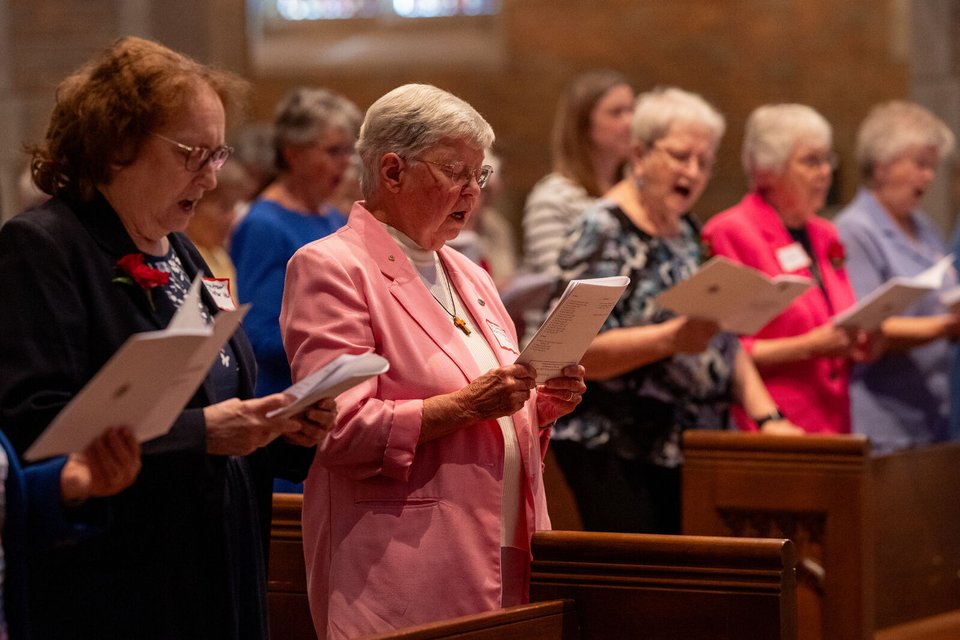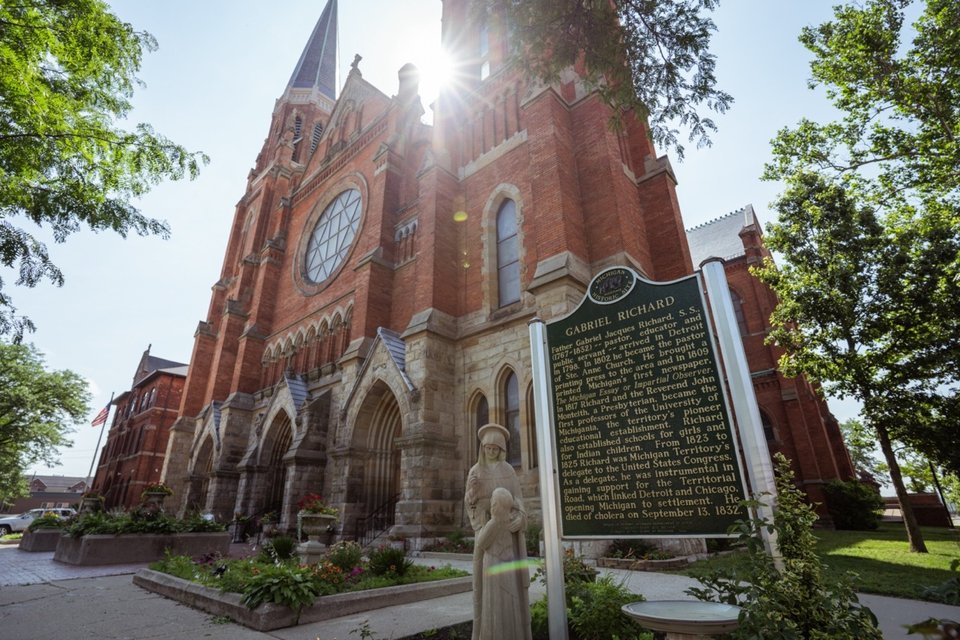Pontifical Institute for Foreign Missions first arrived in the Motor City at Cardinal Mooney's invitation following World War II
DETROIT — It was from the wreckage and carnage of World War II that the PIME Missionaries came to American shores and settled in Detroit.
The Pontifical Institute for Foreign Missions was founded in 1850 by Bishop Angelo Francesco Ramazzotti in Milan, Italy, to support Catholic missionaries going around the world to preach the Gospel. But Italy was on the losing side of World War II, and the people didn’t have the resources to support the missions.
Cardinal Edward A. Mooney of Detroit was familiar with PIME’s work when he was the apostolic delegate to India, and in 1947, he offered the PIME Missionaries a new home, establishing the institute's North American headquarters and caring for San Francesco Church, which was then on Brewster and Hastings in the city’s Black Bottom neighborhood.
Seventy-five years after Fr. Guido Margutti, PIME, was invited to be a guest of San Fransesco's pastor, Fr. Emil Capano, the institute continues to dispatch missionaries across the globe with support from the Motor City's faithful.
“We’re an Italian-based organization, a society of apostolic life — not a religious order — presently working in 19 countries," Fr. Ken Mazur, PIME, U.S. superior for PIME Missionaries, told Detroit Catholic. "Our charism is foreign mission, primarily evangelization among those who don’t know Christ.”
Since that time, PIME has been an integral part of the Detroit community, serving at San Francesco — now based in Clinton Township — and other parishes in the archdiocese, raising money and support for foreign missions and being missionaries themselves no matter where they are.
“A majority of our members are still Italian, but newer vocations come from a variety of our missions,” Fr. Mazur said. “Most of our numbers are from Italy, but they tend to be older, retired priests, and we have newer vocations from India, the Philippines, Brazil, and other countries where we have missions.”
The institute maintains its U.S. headquarters on Quincy Street in northwest Detroit, organizing fundraisers for missionary activities around the world, including its annual golf outing and upcoming “Serata” (Italian for “evening") charity event on Oct. 6 at the San Marino Club in Troy.
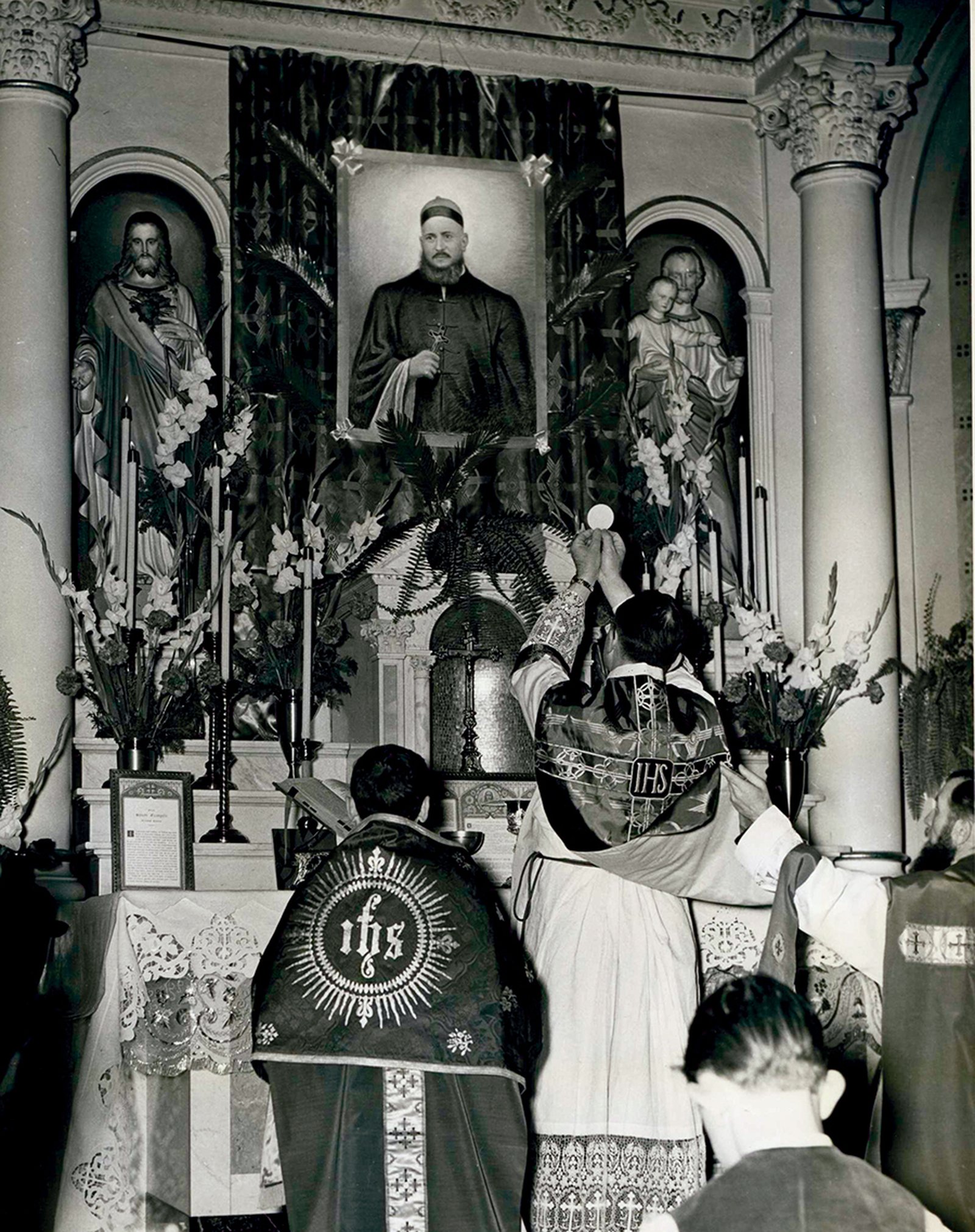
PIME garners support for the missions from the connections they develop in the Archdiocese of Detroit, cultivating relationships with people who in turn learn more about PIME’s mission and want to support their work.
“When PIME started in Detroit, we took care of San Francesco Parish because it was an Italian parish in Detroit,” said Fr. Daniele Criscione, director of the PIME Mission Center. “After 75 years, PIME has been doing a lot, making lots of good friends who support our missions. Cardinal Mooney was a great friend of PIME, and when Fr. Margutti started their activities here in the States, PIME got an American soul, I would say.”
In addition to the Oct. 6 "Serata" fundraiser, which will feature an Italian dinner and keynote from Fr. Bruno Piccolo, PIME, a former U.S. superior, the institute also plans to host a invitation-only donor celebration with Archbishop Allen H. Vigneron on Nov. 6 at the Colony Club in Detroit.
The celebrations are meant to thank the countless supporters who make PIME’s work around the world possible, from financial contributions to prayers for the success of the missions.
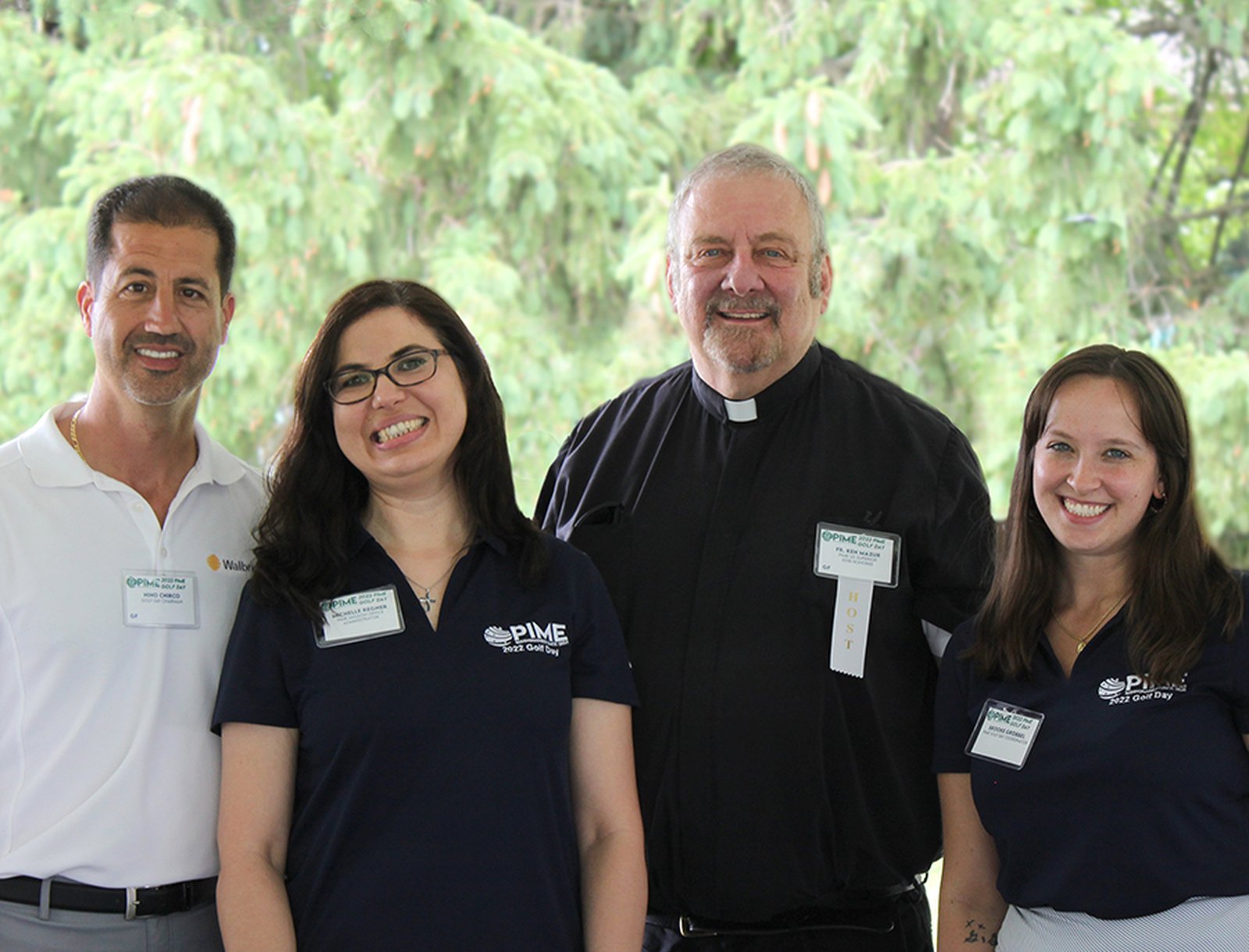
“The first thing we ask our supporters to do is pray, because prayer is the most important thing,” Fr. Criscione said. “During COVID, we found ourselves praying the rosary on Zoom with both our donors and the people we are serving in the missions. It was the first time the people supporting us were ‘with’ the people we were serving. It was an amazing experience.”
In a world of satellites, internet and instant communication, it might seem hard to believe there could be corners of the world that haven’t heard the Gospel proclaimed. But it still happens, from frontier states in northern India to repressed communities in Myanmar and China, where countless people have never heard of Jesus, Fr. Criscione said.
“We are trying to get back to China, but it’s not so easy," Fr. Criscione said. "We just sent a couple of young priests to Taiwan to learn Chinese, hoping they could go to China. But that is just one of many challenges in a very complex situation.”
Nineteen PIME Missionaries have given their life to the faith as martyrs since the society was founded in 1850, the first being St. Alberico Cresciteli, PIME, who was killed in China in 1900. The most recent martyr is Fr. Fausto Tentorio, PIME, who was killed by a gunman in the Philippines on Oct. 17, 2011.
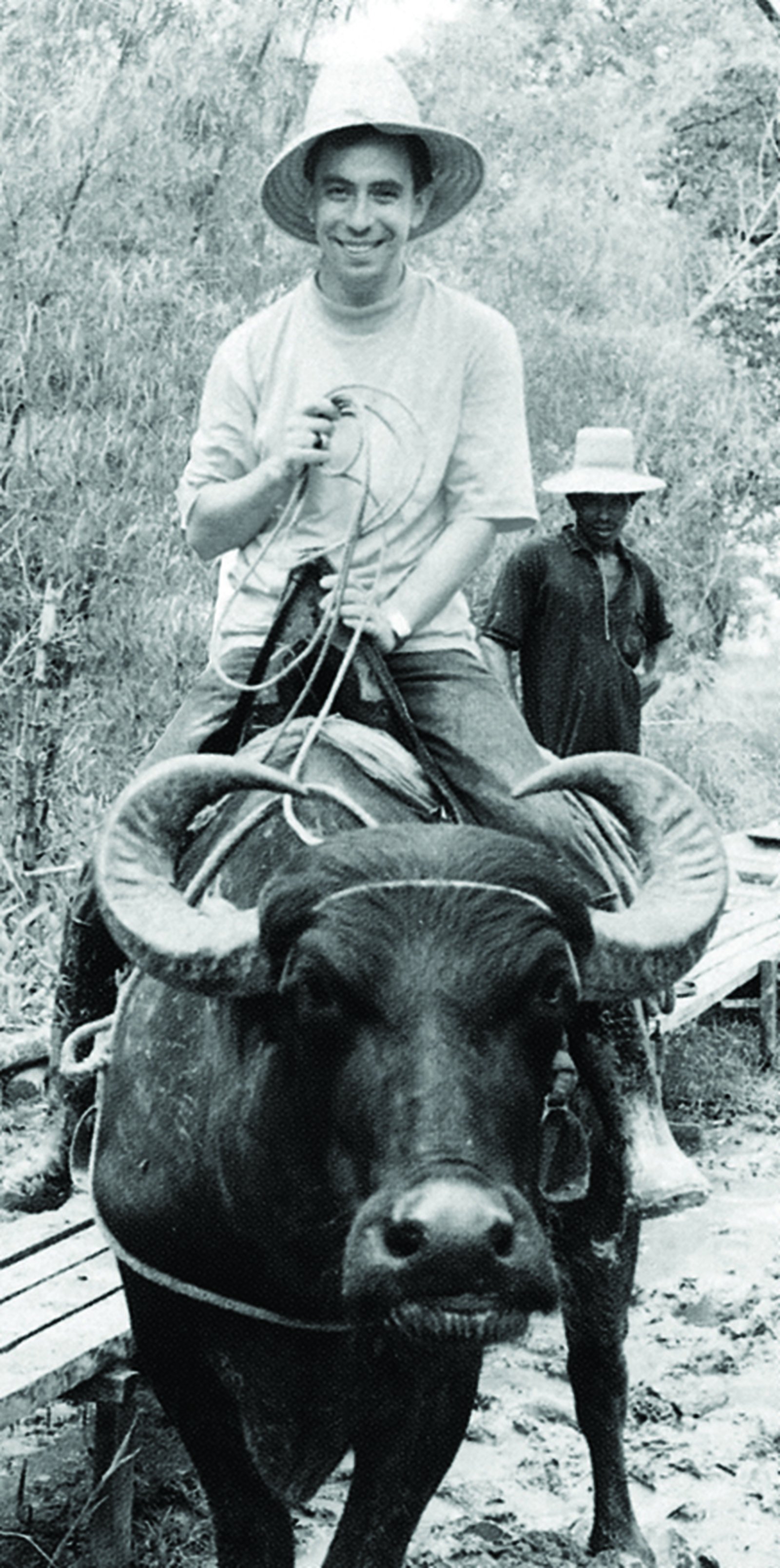
Most PIME Missionaries aren’t called to martyrdom, but they are called to preach the Gospel to people who have yet to embrace Jesus Christ and his teachings, Fr. Mazur said.
“I was a missionary in Japan, and when you think of missionaries, you don’t think of Japan,” Fr. Mazur said. “In Japan, I would say a good percentage of people have heard of Jesus Christ, but that’s about it. They relate Jesus Christ to Christmas. They don’t know about his teaching, what the Gospel is, etc. ... Maybe they were baptized at one point, but they don’t know who Jesus is, what his life means for us.”
While PIME missionaries serve in 19 countries around the globe, its U.S. headquarters is settled in a city that features a prominent immigrant population from countries that aren't Christian, providing an opportunity to be missionaries closer to home.

“It used to be you had to go to Bangladesh to proclaim the Gospel, but now you can go to Hamtramck to proclaim the Gospel to Bangladeshi people. The mission is requiring us to change our thinking," Fr. Criscione said. "We can’t continue to ignore them, to live side by side, but they don’t know about Jesus. My dream is to see a PIME Father who worked in Bangladesh coming to Detroit to work with the Bangladeshi community in Detroit, in Hamtramck, where they speak their language and know the culture.”
As an apostolic society dedicated to preaching the Gospel around the world, Fr. Mazur said the PIMEs can teach others in southeast Michigan what it means to be missionary in the 21st century.
“It’s more than just preaching the Gospel,” Fr. Mazur said. “A few years ago, when we were in Rome for our chapter meeting with the pope, Pope Francis said you don’t just become a missionary; it’s in your blood. It gives you the fire of living the Gospel, not just preaching the Gospel. By your life and the way you live, it's something you put into action and living words.”
Copy Permalink
Missions Consecrated life History



